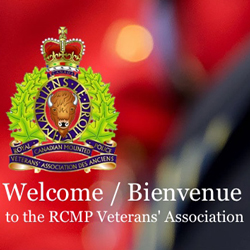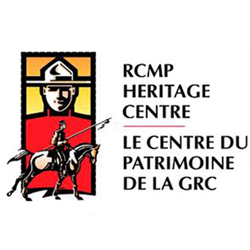S/Major Joseph Francis
One of the earliest symbols of bravery and inspiration to the early NWMP members was that of a 5’10” tall older man named Joseph Francis.
For reasons only known to himself, his actual name was Joseph Lane. He emigrated from England to Canada under the fictitious name of Joseph Francis (Canadian Passenger Lists, 1865-1935 about Jos Francis, 2010).
In a letter to Commissioner Leonard Nicholson, Howard Steele (son of Sam Steele) stated “I have found the following respecting Sergeant Major in the original manuscript of my father’s book ‘Forty Years in Canada’ which unfortunately omits the following passage:
“Having arrived at Fort Walsh in early 1877, ‘I got quarters in one of the rooms and took over the duties of R.S.M. from Joseph Francis, a veteran of the charge of the six hundred, who had done the work there for a few months past. Joe, as he was known by his men, when his back was turned.” (Steele, 1954)
In the same letter, Howard Steele further stated:
“My father had been RSM since the middle of 1876 but had been away from headquarters for a considerable time, hence Francis doing the duties in Steele’s absence. As my father took pains to be meticulously accurate in his book, it may safely be assumed, therefore, that Francis did ride in the charge as (under the surname of) LANE. His right name was Lane, which for domestic reasons he kept to himself.”
In the Book No. 2 Descriptive Roll – Fort MacLeod (NWMP)– 1877 – 1878, Joseph Francis lists his Next of Kin as Thos. A. Lane of Isleworth (the London Borough of Hounslow).
Joseph Lane (FRANCIS) was born June 16, 1835 in Hounslow England (noted on his death record). At the age of 18 (1852), he joined up with the 13th Light Dragoons and was assigned the regimental #1502. Two years later, he departed England with his regiment to participate in the Crimea War. After the War, he returned to England where he was quickly promoted to the rank of Corporal in 1856 and to Sergeant in 1858. On December 4, 1862, he was discharged from the British Military because of a leg injury and received a two year pension. He remained in west London until 1871 at which time he emigrated to Canada.
On July 20, 1871, Joseph arrived in Montreal on the ship called “Lake Superior.” However, his activities in Canada between 1871 and 1974 remain a mystery. In all likelihood, he probably migrated to Toronto to be near his old colleagues of the 13th Hussars (formerly 13th Light Dragoon) as they were stationed in the Toronto area at the time. It is also interesting to note that in 1866 Sam Steele received cavalry training from members of the 13th Hussars in Toronto.
On June 3, 1874, Joseph Francis engaged in the Northwest Mounted Police and was promoted to the rank of Chief Constable (Sergeant Major). Consequently, Sam Steele would probably have exchanged stories about his 13th Hussars riding instructors with Joseph Francis. In the book entitled “Maintain the Right” by Ronald Atkin (page 50) states:
“Sergeant-Major Joseph Francis, a much-decorated veteran of the Crimean War, added badly need experience” to the newly formed police force.
During March West, Joseph Francis was the Sergeant Major for “B” Troop and served under Sub-Insp. E.A. Brisebois and Sub-Insp. Edwin Allen.
Many books on the early Force contain references to Sergeant Major Joseph Francis. In the “Red Coats on the Prairies: The North-west Mounted Police 1886-1900” by William Beahen and Stan Horrall (past Force Historian) – stated on page 221:
“In the early years of the Force, Sgt. Maj. Joe Francis had been singled out because he wore the Crimean War Medal. Every school boy in Britain and every English-speaking one in Canada knew about the Charge of the Light Brigade. Most of them had been forced to learn Tennyson’s immortal lines (Tennyson, 1854):
All in the valley of death
Rode the six hundred.
Some one had blundered:
Theirs not to make reply,
Theirs not to reason why,
Theirs but to do and die.”
In August 1879, John Finerty (reporter for the Chicago Times) came to the Canadian Northwest Territories to report on Sitting Bull. Upon his departure back to the United States, Superintendent Walsh arranged to have four NWMP members escort him back to the United States border. One of these members was Sergeant Major “Joe” Francis. In John Finerty’s book entitled “War-Path and Bivouac: or, The Conquest of the Sioux””, he outlined his conversations with Sergeant Major Francis.
The following is an extract from this book (Finerty, 1980):
It was arranged that Francis would turn back at Medicine Lodge Creek and the others, who carried dispatches to General Miles, would see me (Finerty) safely to his destination, I was greatly impressed by Francis, who wore the Crimean and Turkish Medals and who, under prompting, asked about his life in the 13th Light Dragoons (later Hussars) and of the charge of the “Six Hundred” at Balaclava 25 years earlier.”
In looking at the sergeant major’s uniform before he left us, I observed the Crimean and Turkish medals on his breast. I read on the clasps, “Alma,” “Balaklava,” Inkermann,” Sebastopol.”
“You have been a hussar?” I inquired.
“Precisely,” responded the gallant veteran, whose hair and mustache were then almost white. “One of the 13th Light Dragoons, now 13th Husssars.”
“What,” I exclaimed, “one of the regiment that charged with the six hundred?”
“Right into the Valley of Death,” said the old man, kindling up.
“Into the mouth of hell,” I followed on.
“By god, you know it all!” cried he. “I was a young fellow then – enlisted in ’52 – an English lad, wild as the devil. We were all wild in the noble 13th! How we longed for war! We go enough of it afterwards!”
“I wish you’d tell me all about it – I mean that glorious charge,” said I.
“Then I will, although I have told it a thousand times to the young fellows,” said he, proudly.
“Go ahead – you are about the first genuine Six Hundred men I have met since I was a boy.”
“Can I ever forget it?” he said. “Can I ever forget Balaklava? Its rush and clash and thunder are still in my ears, as that bracing 25th of October 1854, comes swiftly back on the tide of memory!
We had been skirmishing all the morning – my regiment (13th Light Dragoons), the 8th Royal Irish, the 4th Light Dragoons, and the rest – when all at once I found myself riding right behind the Earl of Cardigan. Captain Nolan dashed down, and, as near as I can remember, and as I heard afterward, which may have fixed it in my mind, in a ringing voice cried out, ‘My Lord, the Light Brigade goes forward! Yonder are the Russian guns, and you are to take them!’
“What did you think then? I asked.
“I didn’t think at all. There were the Russian guns extended clear across the valley far in our front and flanking us on both sides from the hills, so that when we rode on a short distance we were exposed to a cross fire. After a few seconds we recovered from the shock of the order – the humblest soldier could see something was wrong. Tennyson struck it about right when he said ‘someone had blundered.’ But what could we do? Cardigan wheeled his horse, his drawn sabre flashed for a moment, and he gave the word. Closing up, our men, stirred by the splendid peril of the situation, uttered a shrill cheer. Our walk became a trot – our trot a canter – our canter a gallop – at last a mad race right on the Russian cannon! The astonishing enemy did not seem to understand, and, with an appalling peal, their batteries opened full upon us.
I saw, even in the excitement of that moment, Nolan reel from his saddle and fell to the ground. Everything swam around me, for Nolan was a favorite with the cavalry. I felt a mad impulse to kill, and could see nothing but the smoke of the Russian batteries, and through the smoke dimly the tall figure of gallant Cardigan at the head of his thinned brigade.
Right and left my comrades, horse and man, went down, but I had little time to note such things, for suddenly it seemed we were among the Russian artillery, cutting them down from helmet to collar.
They fought furiously but died all the same. We had nothing with which to spike the captured cannon. Their cavalry came on like a storm-cloud, but we cut through them as if they had been mists, rode around and reformed again. Above all the noise we could hear the orders of Cardigan, which were repeated by his officers.
The Russian infantry, massed behind the batteries, were afraid to fire, because we were mingled with their horsemen. Three or four times we broke through the cavalry, forming and reforming. At last it seemed as if the whole Russian army was coming down upon us. Then Cardigan, seeing further slaughter useless, gave the order to retire, himself being the last. Not one of us would have found his way back but for the courage of the French Chasseurs d’Afrique, who silenced one of the Russian flanking batteries. The whole thing was a dream to me. The world knows how few of us returned.
As one of the 8th Royal Irish said in the hearing of most of us when we got in: ‘Faith, I’m more astonished at escaping than if I had been killed.”
The sergeant major laughed at this bit of Celtic lightness amid the superb tragedy of Balaklava. “That,” he said, “is my remembrance of the charge of the Light Brigade. Scores have told it before me, and every man has his own version. After nearly twenty-five years, it is pretty difficult to be entirely correct.
The story of the old dragoon interested me greatly, and, as I wrung his hand at parting, I felt that his uniform covered a man who deserved better of his country than to be arresting Indian blackguards among the wilds” of the Canadian Northwest.
On April 3, 1880, Joseph Francis was discharged from the NWMP at Wood Mountain and applied for his Land Grant of 160 acres in the Northwest Territories. The Land Grant was awarded on June 24, 1880 in lieu of his dedication service in the NWMP.
The 1881 Census recorded him as living in St. Patrick’s Ward in Toronto and residing in a Rooming House as of April 5, 1881. It was reported that there was a fire in the Rooming House and Joseph Francis risks his life to save people in the burning building. As a result of the fire and smoke, Joseph suffered from congestion of lungs for 10 days and eventually died on April 23, 1881. On his death certificate, his occupation was listed as ‘Soldier – 13th Hussars” and marital status as “widower.” His body was laid to rest at the St. James Cemetery 635 Parliament Street in Toronto, Ontario.
One amazing fact discovered in researching this intriguing individual is that both his 13th Light Dragoon Personal File and that of the NWMP Personal File contained no defaulters for mis-behaviour. His Discharge Certificate below lists his conduct as “Very Good.” Clearly, he was a role model for other young members of the Force.

Photograph of the gravemarker for Sergeant Major Joseph Francis of the North West Mounted Police (Source of photo – RCMP National Gravesite Database)


 January 4, 2012
January 4, 2012 












